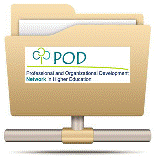Professional and Organizational Development Network in Higher Education

Professional and Organizational Development Network in Higher Education: Archives
Date of this Version
2009
Document Type
Article
Citation
Essays on Teaching Excellence: Toward the Best in the Academy (2008-2009) 20(4)
A publication of the Professional and Organizational Development Network in Higher Education
Abstract
Scientific advances fill news headlines and find audiences in popular movies, legislative bodies, and courtrooms, suggesting that society is broadly engaged by scientific issues. Science students typically learn concepts and methods that ignore the social and cultural foreground as well as religious and ethical implications of science practice. These excluded factors often reappear in scientific developments such as genetic engineering of herbicide-resistant plants, environmental effects of chemical and biological waste management strategies, and medical and health implications of sequencing the human genome. Though today’s science professors are already burdened by expanded content from introductory to advanced courses, now more than ever we need scientists who are able to articulate non-scientific dimensions of their work and the pedagogical skill help students understand their significance.
To get to that point we will need broad-based changes in science education. This essay suggests transformation at course, program, and university-wide levels. The current focus on covering material, presenting facts, and guiding students through laboratory exercises with known outcomes produces able scientists. Yet this approach leaves students unprepared to reflect on the meaning of science and to understand its broader social and moral context. Changes to science pedagogy encouraged by this essay entail training students to understand scientists as social actors who should reflect on the larger context of their work. With such training, students will more ably communicate the powerful role of science and develop expanded ability to work in interdisciplinary teams. Moreover, exploring the underlying assumptions of scientific inquiry will heighten their respect for the limits—and power—of scientific inquiry. In short, they will be better scientists.
Included in
Curriculum and Instruction Commons, Educational Assessment, Evaluation, and Research Commons, Higher Education and Teaching Commons, Scholarship of Teaching and Learning Commons


Comments
Copyright 2009, Jennifer Frederick. Used by permission